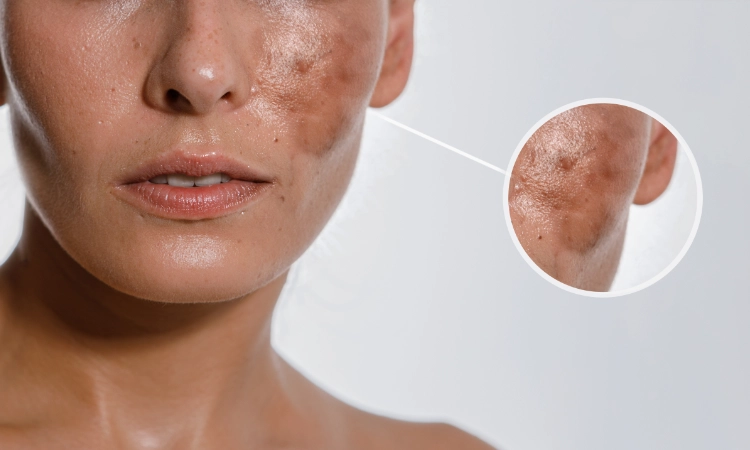Melasma, a common skin condition characterized by patches of darkened, discolored skin, can significantly impact a person’s appearance. These patches often appear on the face, particularly on the cheeks, forehead, upper lip, and chin, and can extend to other sun-exposed areas like the forearms and neck. The uneven skin tone caused by melasma discoloration can lead to feelings of self-consciousness and embarrassment, negatively impacting a person’s social interactions and self-esteem. However, the good news is that there are effective treatment options available to address melasma and regain confidence in your skin.
Ultraviolet (UV) rays from the sun are a major trigger for melasma. The increased melanin production stimulated by sun exposure leads to the development of dark patches on the skin.
A family history of melasma increases your risk of developing the condition.
Medical spas offer a range of effective treatments to address melasma and improve your skin’s tone and texture. Here’s a look at some of the most popular options:
Advanced lasers like AdvaTx and Helios (pico lasers) target the pigment-producing cells in the skin without damaging surrounding tissues. These lasers offer a more precise and controlled approach to lightening melasma patches.
This minimally invasive treatment involves creating tiny punctures in the skin with a microneedling device. This stimulates collagen production and promotes skin renewal, ultimately helping to reduce hyperpigmentation. Microneedling can be further enhanced by combining it with topical serums or platelet-rich plasma (PRP) for a more targeted effect.
Dermatologists may prescribe a combination of topical medications, including:
This gold standard for melasma treatment lightens dark patches by inhibiting melanin production.
These topical medications increase cell turnover and improve overall skin texture. When combined with hydroquinone, retinoids can enhance treatment results.
These medications are sometimes used to reduce the inflammation associated with melasma.
While professional treatments can provide significant improvement, a consistent at-home skincare routine is vital for managing melasma and maintaining results. Here are some key elements of your daily skincare regimen:
To maximize results and maintain a clear complexion, combining professional treatments with a dedicated home skincare regimen is essential. A professional aesthetician can create a personalized skin care plan tailored to your specific needs and recommend the most suitable products and treatments.
In addition to skincare and professional treatments, certain lifestyle modifications can help manage melasma.
Consistent and thorough sun protection is crucial. When outdoors, wear wide-brimmed hats, sunglasses, and protective clothing.
If possible, identify and avoid triggers that may worsen melasma, such as prolonged sun exposure, hormonal fluctuations, and certain medications.







